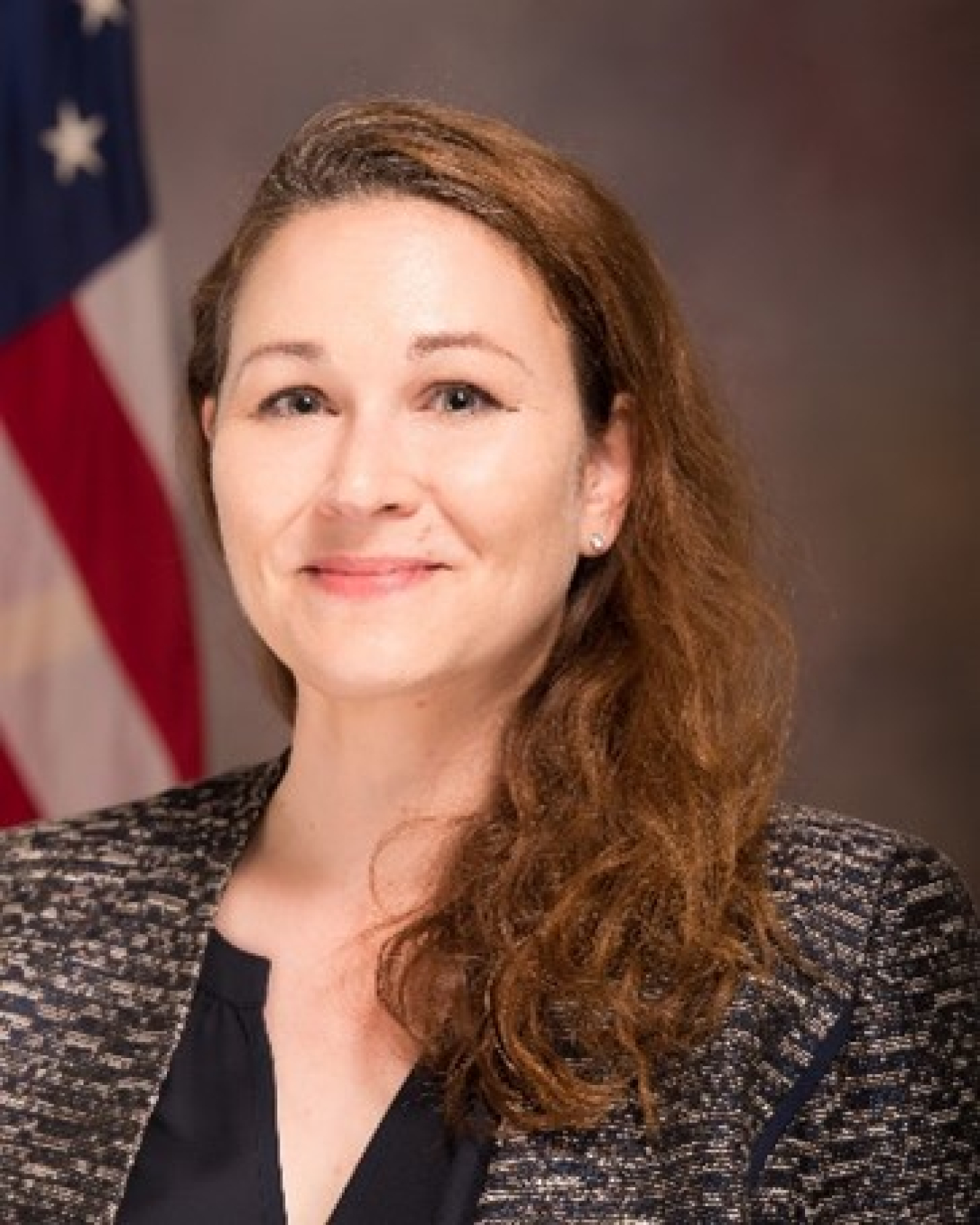The work of U.S. nuclear deterrence involves people who serve our country through a robust nonproliferation and arms control program. Heather Looney, a senior policy advisor in the Office of Defense Nonproliferation is part of that team.
National Nuclear Security Administration
December 22, 2021
The work of U.S. nuclear deterrence is much more than warheads and bombs. It also involves people who serve our country through a robust nonproliferation and arms control program. Heather Looney, a senior policy advisor in the Office of Defense Nonproliferation (DNN) is part of a team of professionals who work to protect America by keeping nuclear weapons out of the hands of people who shouldn’t have them.
In her current role, Looney looks at proliferation trends—technological or geopolitical—with the potential to affect the international landscape and nonproliferation policy. She also helps with DNN’s strategic planning and multilateral engagements.
It’s a little wonky. But to be honest, she was a bit of a wonk early on.
“I knew I wanted to work for the U.S. Government in foreign policy—really, who else asks for a visit to the United Nations as an 18th birthday present—and focus on Russia policy. But whether that was specializing in economics, or human rights, or energy policy, I had no idea,” she said.
It was through a happy accident that Looney learned about NNSA: She saw a flyer on the bulletin board at Georgetown University for what is now known as the NNSA Graduate Fellowship Program. At the time, the program was limited to nonproliferation specialists and the agency was looking for Russian-speaking Foreign Affairs Specialists. Looney fit the bill with a background in international relations and a specialization in Russian studies. The job seemed made for her, so she applied and spent the next year in Moscow working on NNSA’s export control cooperation program.
I knew I wanted to work for the U.S. Government in foreign policy—really, who else asks for a visit to the United Nations as an 18th birthday present—and focus on Russia policy.
“I figured at that time that I would spend a year or so at NNSA and then probably move to the State Department,” she said. “But I fell in love with nuclear nonproliferation and the critical role that NNSA plays in this area.”
Nuclear nonproliferation is part science, part policy, and part art, she said.
“You cannot develop or implement nuclear policy or programs without a thorough technical understanding of the issues at play,” Looney said. “There is always a point in interagency discussions where someone asks, ‘What does NNSA think?’ ”
The agency is a central technical actor, providing the assessment of the problems at hand and potential solutions.
“That’s when the magic happens,” Looney said. “I believe so strongly in the importance of NNSA’s role at the interagency table and in our foreign partnerships, that I have been at NNSA for over 20 years now! The people at NNSA are amazing.”
Looney has had a career of eventful and defining moments. She worked for years on International Atomic Energy Agency efforts, including participating in the negotiations on amending the Conference on the Physical Protection of Nuclear Material to strengthen its nuclear security obligations and include protections against nuclear terrorism. Another highlight was seeing President Obama moderate the 2010 Nuclear Security Summit, with 40-plus other heads of state participating.
Looney considers herself lucky to have traveled and met the people she has and encourages those who want to serve their Nation to investigate opportunities at NNSA. Maybe, just maybe, they’ll be as lucky as she has been.
“My favorite part of the job is getting to meet so many brilliant experts from across the globe. DNN has partnerships with over 100 countries, and I have traveled to more than 30 of them over the course of my career,” she said. “I have met nuclear physicists, engineers, policy makers, military officials, diplomats, economists, emergency responders—you name it. I have learned more from them than one ever could in school or training courses.”

